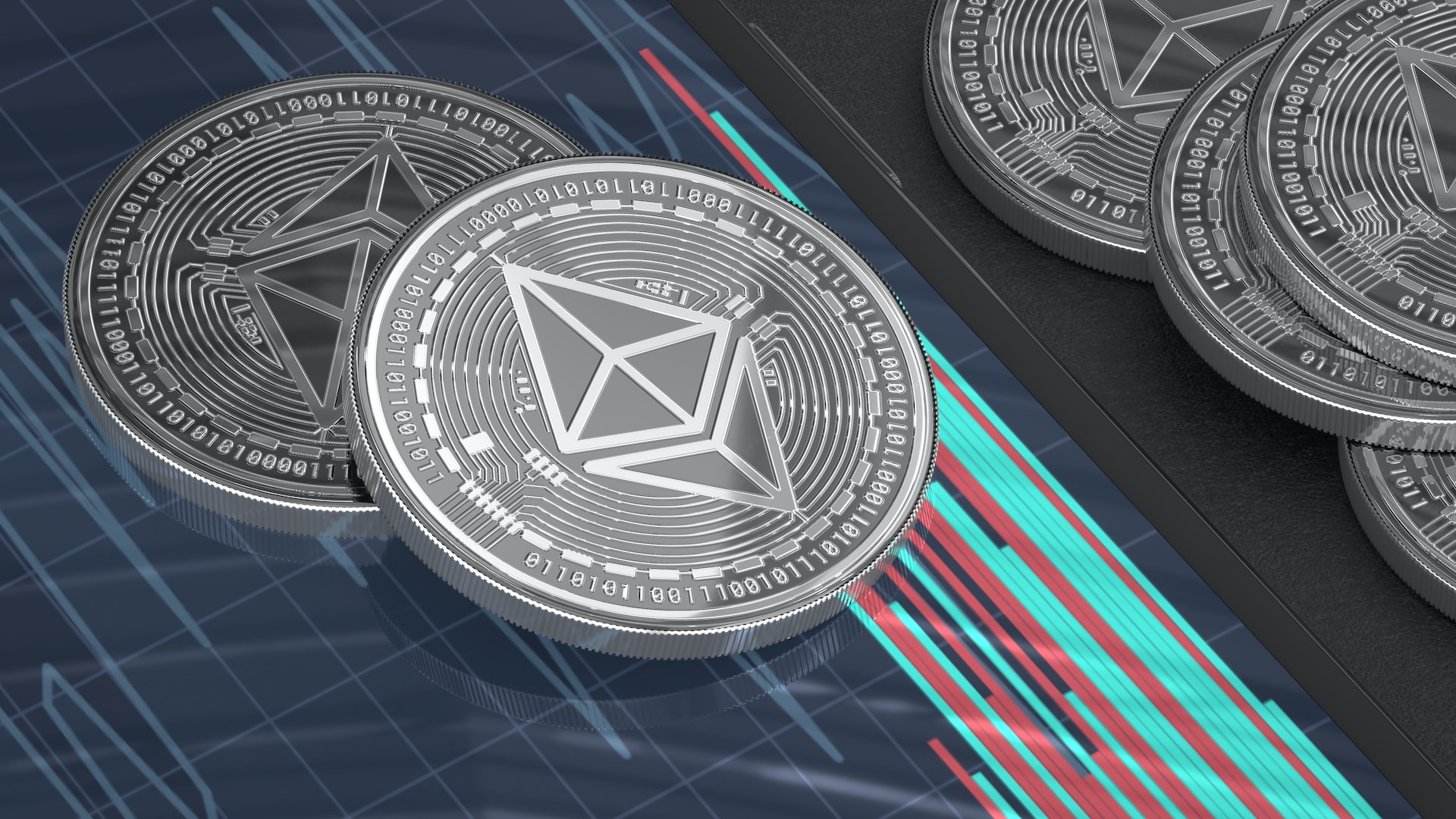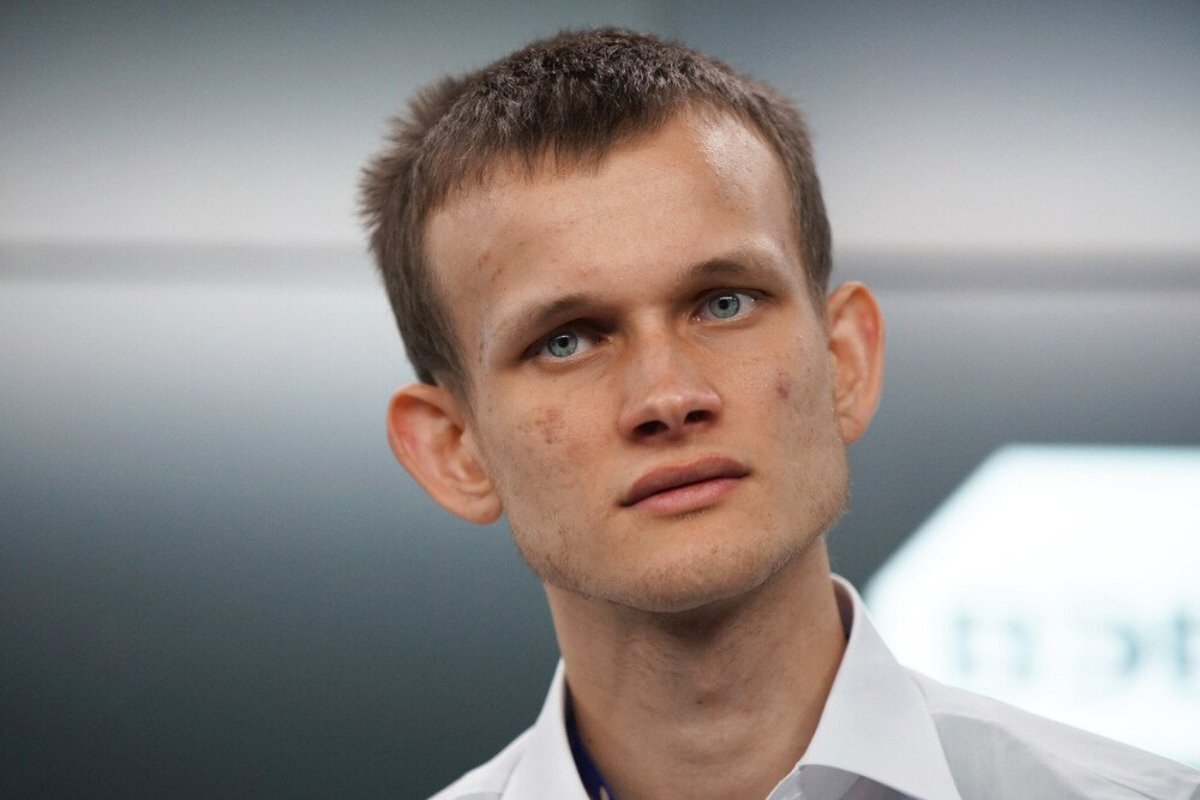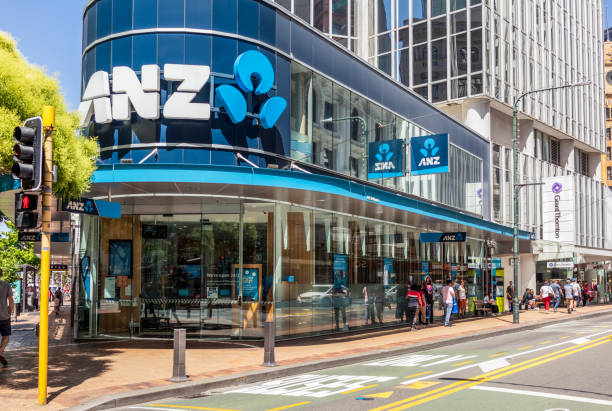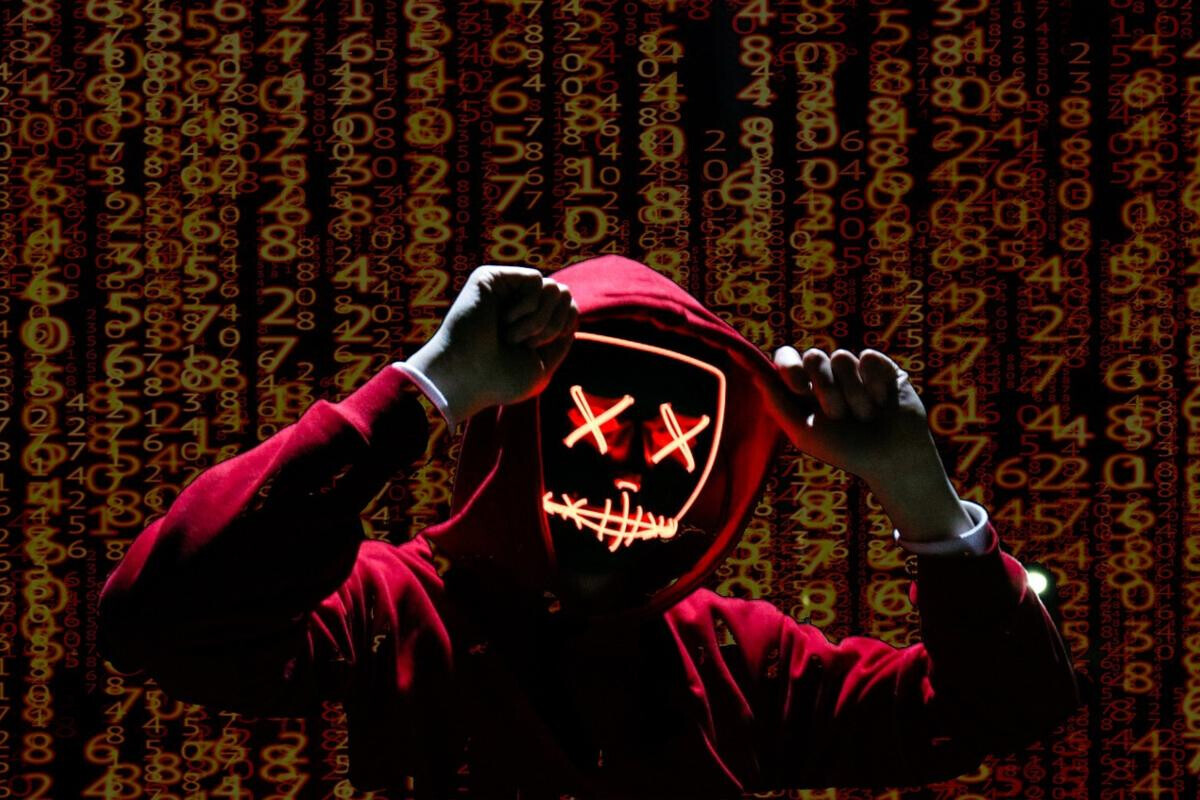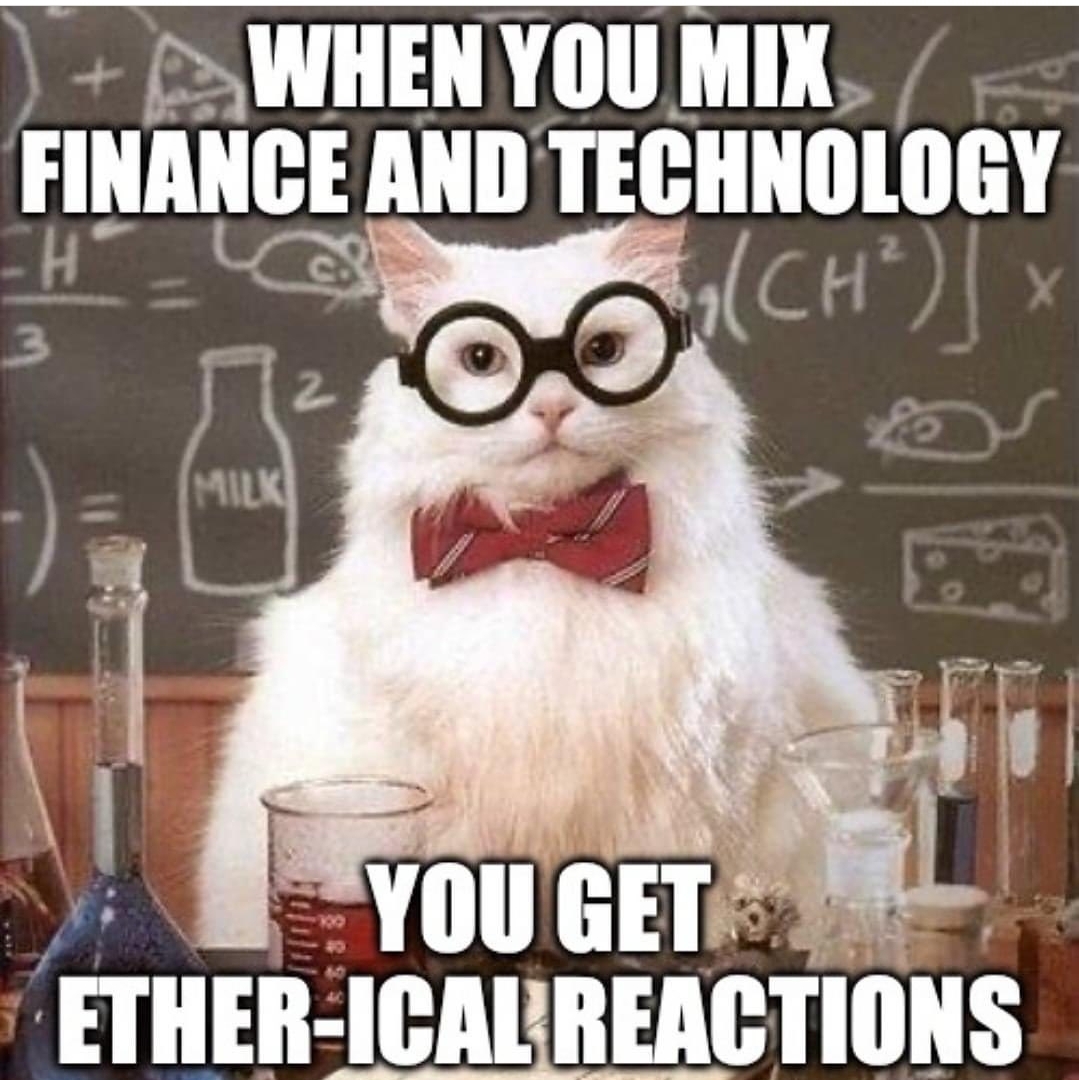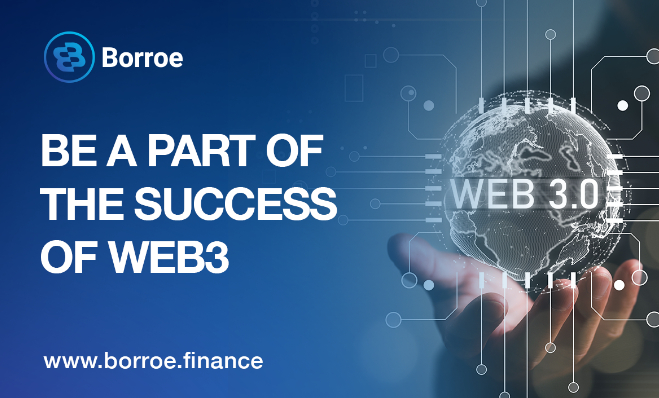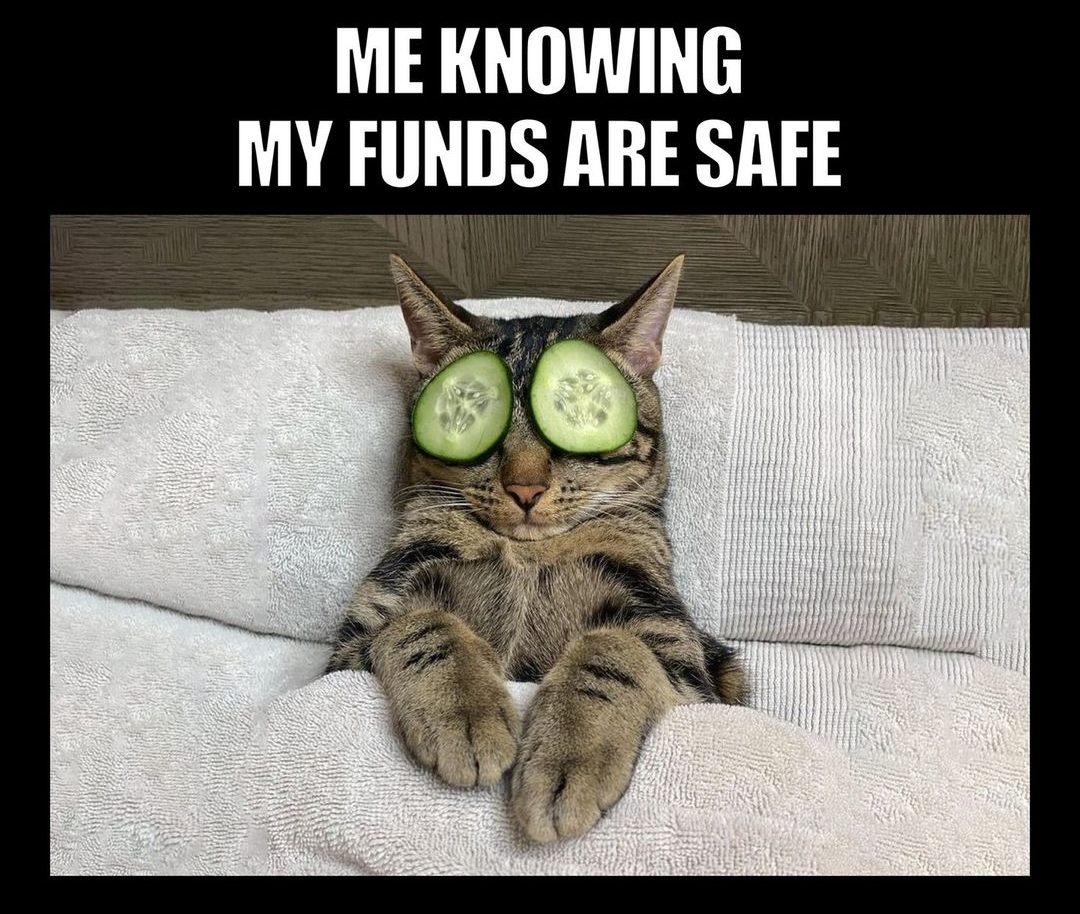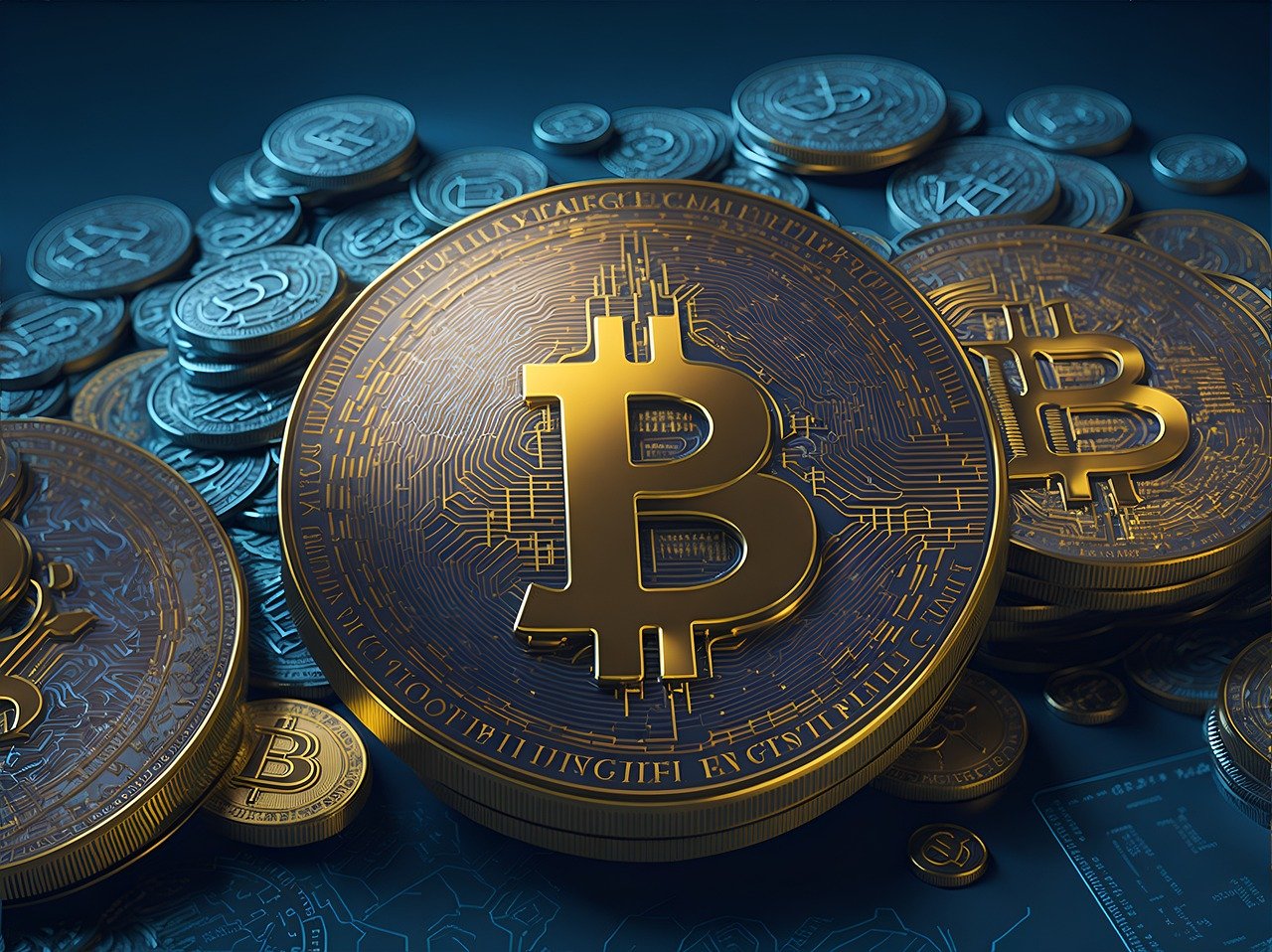Rachel Lin, CEO of SynFutures, on DeFi, Decentralized Derivatives Trading, and NFT Futures | Ep. 265

In an exclusive interview with cryptonews.com, Rachel Lin, CEO and Co-Founder of SynFutures, talks about the recent trend of well-known TradFi players entering the crypto space, removing unnecessary intermediaries in TradFi, and the potential to power the unbanked and underbanked.
About Rachel Lin
Rachel Lin is the CEO and Co-Founder of SynFutures, a decentralized derivatives trading platform. Rachel previously worked at Deutsche Bank, specializing in derivatives, and was part of the founding team at Matrixport, one of Asia’s largest crypto neobanks.
Rachel Lin gave a wide-ranging exclusive interview, which you can see below, and we are happy for you to use it for publication, provided there is a credit to www.cryptonews.com.
Highlights Of The Interview
- The recent trend of well-known TradFi players entering the crypto space
- SynFutures’ V3 DeFi derivatives platform; a decentralized Amazon marketplace for derivatives, or a Uniswap for futures contracts
- Interoperability & scalability (zkrollups)
- Potential to power the unbanked and underbanked
- Removing unnecessary intermediaries in TradFi



Full Transcript Of The Interview
Matt Zahab
Ladies and gentlemen, welcome back to the Cryptonews Podcast. We are Buzzing as always. It's your host, Matt Zahab, coming in hot from Toronto as always. And today, my guest is coming in hot from the one and only Hong Kong. Super pump to have Rachel Lin on the show, CEO and Co-Founder of SynFutures, a decentralized derivatives trading platform. Rachel previously worked at Deutsche Bank, ever heard of them, specializing in derivatives and was part of the founding team at Matrixport. One of Asia's largest crypto neobanks. Rachel's Twitter is also absolute fire. We'll plug that at the end of the show. But until then, super pumped to have you on, Rachel welcome to show my friend. How are you?
Rachel Lin
Thank you, Matthew. Thanks for having me.
Matt Zahab
Super pumped to have you. And I believe you're the first guest to call me Matthew as well. That's hilarious. I love that. Yeah, you're more than welcome to do that. I mean, you know, growing up in, especially in Canada, which is a rather Catholic country, it just seems like, you know, if you have Catholic parents, you just, there's like one of 10 names to choose from. So there's a lot of Matthews. I had about three Matthews in every class growing up. And that's why I sort of just switched to Matt, just to, you know, just to be a trailblazer. But hey, it shows about you not about me.
Rachel Lin
I stand out from the crowd.
Matt Zahab
Exactly. You stand out from the crowd. Let's jump into it though. So you and the team have an incredible decentralized derivatives exchange, which enables anyone to list and trade futures and perps on any assets, which is huge, especially for the crypto industry, as we didn't really have this until a couple of years ago. And we will get into this. But until then, let's talk about your past. You have had some incredible companies. You are currently living in Hong Kong. Give us the TLDR on Rachel. Where do you go to school? Where'd you grow up? What are your passions? How'd you get into crypto? And then we'll jump into SynFutures a little bit later on.
Rachel Lin
Sure. I was majoring in finance and then financial engineering sort of a little bit tech and coding for my university as well. But my first career was with a traditional finance institute, Deutsche Bank, in which I specialized in derivative sales and trading. After that, I joined a Fintech company called Alipay, if you heard about. And it was with Alipay when I led their first versions of blockchain platform and started to learn about blockchains and grow lots of interest into it. And later on, so I joined a Bitmain and Matrixport just now you mentioned, so one of the largest Asian crypto neobank and became one of the founding partners. But my interest has been always in the true Web3 decentralized wall, so that's the reason why I started SynFutures, the decentralized exchange. Yeah. So all the way from traditional finance to Fintech to CFI to DeFi, sounds like all the right direction.
Matt Zahab
100% know it totally does. And was it a no brainer for you to leave TradFi and start your own derivatives exchange? Like I'm sure your family, your friends were like, Rachel, what are you doing? That's a huge risk. You had a cushy position at a world-class institution and then you decided to leave. Give me the story. What happened there?
Rachel Lin
Sure. I think at that time, it was not very hard for me to make that decision. Although, yes, you're right. My family is saying, hey, this is the same thing. I mean, you have like, I think it's like 70% pay cut. And of all until he went into the Fintech space and drew like, Rachel on the blockchain, what is blockchains? There are lots of scammers out there. That's the talk out there. But I kind of feel like, I mean, like there will be like three major driver. First of all, it's to opt your macro environment-wise. You feel that the from the traditional investment banks been taking like a two far way. I was like training and lots of the cranky stuff like whatever. Interest rates, spreads, language, very structural derivatives that no one could understand. And I don't know what's the purpose of doing all of this. And it woke me up at night. So I feel like there's something that's not very interesting. There's not hope. The whole industries and the, let's say, the human being up to all right. So that's the environment that I was at that time. And the other thing is that I think at that time, my first steps into a Fintech company because I saw those beautiful story where how technology could make a difference. and bring the change to those people that have no access to financial services. And when we did blockchain, we go and visit all those very poor house communities in Philippines and see how my simple solution could make change. So that's very fascinating. And to be honest, the bottom line is that I was feeling that, hey, why not just trip these chunks and go on a journey after all. If you feel that you can't, I mean, stand out. I mean, you can't survive. You could always go back to investment banking. So that's the bottom line. But I mean, like, it seems to me that many people will have finance and at least my friends, whoever left traditional finance enter into the cryptos never think about coming back.
Matt Zahab
It's a really good point and it's so true everyone who does jump ship really wants to go back. It's a fun world over here before we get into SynFutures I again, I always lurk my guest Twitter. I have to it's part of the job. You had a very spicy take you had a hot take normally we save hot takes for the end. But we got to jump into it right away. I read your article I forget which website it was on my my apologies. But you had a bit of a hot take that FTX deserves a second chance and you are a believer that they can relaunch. Sort of rebrand but just with the power and prowess and obviously the capital that they had you think you still think that they have enough pizzazz to relaunch and actually be successful I'd love for you to get into that and tell us why FTX deserves a second chance and why you think that they could have a successful relaunch.
Rachel Lin
Sure, I mean like for the greater benefits If it has a second chance, I think like there could be possibility for those who suffer from the FTX bankruptcies could get certain ties of let's say recover rates and because it reminded me of the Bitfinex story where it got hacked and it launched the tokens to all those creditors and then pay out their revenues. To others people who suffer from the lost and later on I mean I make a good success story. So I mean like from under the goods for all those people who suffer from a lost I mean like although that it does not guarantee the FTX would do the same. But at least there is a chance so that's for one part, but secondly, I do feel like Whether or not to relaunch the exchange is different from one. I mean like just give the pure same management team a second chance. I mean those who did things wrong have to get punished. So relaunch does not not means just a simple forgiveness of the existing, I mean, management. Those who are sort of like get things wrong should still, I mean, like go to jail, I'd say, and should still, I mean, like get punished. And let's say that in the restructure, all those equity holders will still suffer from a loss from their capital investments. So that's what an equity holder is entitled to. So let's say that I'm not too concerned about like the moral hazards that it might bring because all those people who need to get punished will have the penalty anyway. And certainly I would say that FTX does have something good in its exchange. We know that FTX has been running well. It is Alameda's in the back door and everything that will long. People still enjoy the simple user experience, still enjoy the trading experience, and there's some value into it. So if someone who could take it from here and inherit the Google parts of FTX and relaunch, and sort of like give a chance and compensate some of the existing, I mean, previous users, I would say that this is good for the industry after all.
Matt Zahab
I agree with you. The only thing that could be really bad there is if the relaunch happens and they do the same shit, which I can't see happening with how much scrutiny and publicity and how many eyes are on them. So I agree with you. This does seem like asymmetric upside. It seems like there's only a lot to gain for FTX and everyone who is affected by FTX. But I mean, that would be crazy. Yeah, you should spearhead that. That'd be good news, good vibes. We could use that. Let's jump into one of the trends that you are big on right now. And that is the recent trend of well known traditional finance players entering the crypto space. Obviously, everyone is extremely bullish on this. When you have an established financial institution that enters the space, you have increased validation and trust. It gives us more opportunity for wider institutional adoption. And just obviously the mainstream awareness of digital assets as a whole. We have obviously the Bitcoin ETF filings. We have stablecoins. We have PayPal getting involved. The Ethereum ETF as well. Great news. What's going on in this regard at the moment? Give us the TLDR on everything related to big TradFi players entering the crypto space.
Rachel Lin
Sure. I think like falling for ETF is nothing new, but what's changed this time is that all those major players, all big names like BlackRocks and Fidalities, also joined again. And as well on the stablecoin France, we know PayPal is one of the largest Fintech companies in the world. Also, I mean, launched a stablecoin recently. And in Asia, you saw monetary authorities of Singapore release the response to stablecoins regulations and already, and like framework coming up and lots of respondents from all those traditional financial players as well. I mean, a lot has been happening and major players are in a game. But I would say what's interesting to know is the timing. You think about it as what is particular about the timing right now. Number one, it is a bear market. I'm not sure what you remember that, but during the last bear cycle, all those traditional financial players, big investment banks were saying that they are orders the pot burns to trade cryptos when Bitcoin was on the rise, but suddenly just pull off and stop the efforts when Bitcoin price crashed. And this time again, it's a bear market, but the efforts still there. So I would say that at least it indicates that crypto has formally been established and it's being recognized as not a scam, not just a bubble that could just last for a few days, but recognized as a very formal asset class by the large institutional players. That might be because they also see a lot of interest from institutional players and their retail clients. So it was interesting to see that. I would say the other point to know is that it is during a time when lots of regulatory crackdowns happen, like the SEC one. So that might indicate that all those larger players are also seeing the regulation clarity on the way and feel positive about the future regulations.
Matt Zahab
I love that. You absolutely bang on there, Rachel. Absolutely bang on. Next topic I'd love to get into, the start of the show, SynFutures. Give us the TLDR, give us the elevator pitch, then we'll get into all the fun stuff, the derivatives exchange, and of course the NFT derivatives as well, which is super cool. But give us the elevator pitch on SynFutures, why are you and the team created it, what it is today, what you have cooking, and then we'll get into some of the nitty gritty.
Rachel Lin
Sure. SynFutures is a derivative exchange that runs by, let's say, Amazon type models. So anyone could lease and trade anything on the platforms in 30 seconds. So it could occur at any time. everything like Bitcoin, Ethereum, and all those altcoins. And yes, you said NFT as well. It is until the one of the largest derivative exchange platform, and it was the largest derivative platforms on Polygons earlier. And it was also backed by groups of very renowned investors, including Polychains, Pantera, Framework, Dragonfly, and standard cryptos among others. The interesting thing about SynFutures is that we came into the space and from day one, we adopted a fully permissionless approach. So I mean, until today we are the first and the only one that's providing the tools for everyone to create any pairs for derivatives in 30 seconds. We have enjoyed good success for the past two versions, 20 billion cumulative training volume already. But what's exciting is they will launch in a new version 3. Just a little teaser that we'll be launching a revolutionary model that will be able to unify concentrated liquidity that is range, with on chain order box. So stay tuned that we'll be releasing information here.
Matt Zahab
That's wild. Let's jump right into it. But before then, we have to give a huge shout out to our sponsor of the show PrimeXBT, longtime friends of cryptonews.com and longtime sponsors of the Cryptonews Podcast. We love the team at PrimeXBT as they offer a robust trading system for both beginners and professional traders. It doesn't matter if you're a rookie or a vet, you can easily design and customize your layouts and widgets to best fit your trading style. PrimeXBT will also be offering an exclusive promo for listeners of the Cryptonews Podcast. After making your first deposit, 50% that is 50%. 50% of that first deposit will be credited to your account as a bonus that can be used as additional collateral to open positions. The promo code is CRYPTONEWS50. That's CRYPTONEWS50 all one word to receive 50% of your deposit credited to your trading account. And back to Rachel and SynFutures. Rachel, one thing that I always get asked from friends, family, network, you name it, when they finally start learning about DeFi, which obviously is what you and the team at SynFutures are, I always get asked, what makes DeFi better than TradFi? They obviously don't use the words TradFi, but they go, why crypto, why DeFi, why should I get into DeFi? I keep hearing that it is more efficient. It helps me as I am underbanked or unbanked. It helps me get more power, ownership, control, transparency, you name it, yield farming, whole nine yards. But if someone like my parents or someone in my network were to go, Rachel, what are you doing? the advantages of DeFi over TradFi, what would you say to them?
Rachel Lin
Yeah, you're right. Those both words about decentralization and transparencies, but the important thing is that what do they mean. Right? If I'm going to give the answer, I would say that I'll just explain two words. One word is what is openness and permissionless. That's what separates DeFi from TradFi nowadays. I mean, one of the most important parts. So what does it mean by openness? It meant that to your parents, the whole world's financial services is open to you. You could enjoy JPMorgan private banks' products. You could use city banks' service prime services. You could ask Goldman Sachs to help you to sort of like doing MMA with very small toys or whatever small projects that you want, all the things are open to use. And what they call Metamask just simple what's best is this, nobody will ever hold your assets. None of the institutions would hold your assets in DeFi. Just one simple wallet, it could go from like today in Citibank and in 10 seconds you could just go to whatever other services as you want and all are just in the hands of your keys. So that's the good thing for the users for openness. And for, I mean like, but I think there's another group that I might like to adjust just for us like the builders. So the good thing about openness for DeFi is that it's significantly lower the barrier for developers and entrepreneurs. Think about the huge teams that you need to hire in order to start the business. But here in DeFi, I mean like you could, as what we said, you could just use Citibank's accounts and if you like BlackRock's custody services, you could just build things and innovate on top of this. And all those institutions who also provide proof to your customers that yes, you did move the customer funds through their account to enjoy the services. So openness is really something that's amazing and powerful. I would make a comparisons to the Web2 world. It was like previously you could only read AOL or sums up to some of the, I mean ready make papers that everyone said, but right now you have YouTube, you have podcasts, you have Twitter's and you get access to so many different types of information out there. But Web2 is just for information. But in Web3, you can enjoy the financial services as well. So that's the first word about openness. If I were to explain the words of trustless, I think that's the only accents of the blockchain's trustless. What do you mean by trustless? Again, in Web2, trustless is just an exchange of information. So you are in Canada, right? If you ever do something bad to me via internet, I can do nothing, right? So if I don't know, I mean, I could at most just say something bad about you so you cannot get punished. What happens is that in these cases, the cause of trust is so high that we have to believe in all those large players in the world. We believe in like Google or Facebook or all those large institutions in that, I mean, like that huge so they cannot bear their reputational race. And for some very small players, we can't really rely on them, right? But in Web3, because assets are just on chain. So if Matt, you ever done something bad, I would just get hold of your assets immediately and you'll get punished immediately because all those are written in smart contracts. So and it gives us a way to, I mean, really monitor all the activities that Matt, you have done and give us a way to punish you if you ever done something wrong. So you could see that like a two month curve projects could attract like billions of assets out there. And we don't need to rely on very huge players out there to get the services. We could trust in the code. We could trust in the systems and we could see through everything transparently on what happened out there and get the services as we want. So this is very powerful in that it gives opportunity to so many providers in the world and everyone will have the opportunity to enjoy so many different services. We don't need to, I mean, like giving lots of others benefits to those large players like Google or take all your data without paying anything. So that's the beautiful thing about DeFi over TradFi, I would say.
Matt Zahab
Well said there. You and the team launched V3 and the again, the V2 of your DeFi derivatives platform has already surpassed one billion in cumulative trading volume, which is huge and obviously that's all available and all the data is public and Dune, shut out Dune, incredible dashboards, best in the space. The V3 rollout has an updated AMM model, a dubbed oyster AMM, that sounds like a Rolex to me, very interesting, maybe it is, we'll get into that. But walk me through everything that is new on the V3 rollout and then we'll get into the last part, which is NFTures which is the NFT Futures slash derivatives platform, which is super cool, but we'll save that for last before that, tell me more about the V3 rollout and what is new in that regard.
Rachel Lin
Sure, if you were on the decentralized exchange, while you were noted that I mean, there's lots of debate over by simplicity and efficiency, right? AMM, I get people's disemplacities, should lease assets, but the capital efficiency is being always a challenge. So in SynFutures V3, we solved this problem by bringing revolutionary models, the work of our PhDs for a very long time. It has several features. Number one, it offers concentrated liquidities for derivatives. By concentrated liquidity, you might refer to what we built on top of the blocks of units, what we built before, where you will be able to provide liquidity in certain range and boost the liquidity efficiency. But beyond that, it is still one that is designed for derivatives. So, I mean, we introduced lots of management and account management on top of the centralized concentrated liquidity. As well, I mean, like, we developed a model so that you could provide liquidity with one single token. So that is our concentrated liquidity model for derivatives system one. And secondly, we also introduced the audible features and what's best, fully on chance. And I mean, like, it is, I mean, I would say among the first to have this all fully on chain so that you will be able to enjoy the capital efficiencies that's very similar to CFI. The coolest thing above all is that all these are unified in one model. So, unified liquidity across all of them and so you have the best of both AMM and order book. It is a very significant leap from our previous versions and we'll be releasing all those tech documents in the very coming days as I state to you.
Matt Zahab
We got to go over Dubbed Oyster. Was that a Rolex term? What's the deal with that? What does that mean?
Rachel Lin
So, yeah, because for our models, if you're ever looking at XYK curve, actually did you read through all those like X, XY equals K, right? It is a curve. But with limit order, it's like a pearl. Like all the sleekly is concentrated on certain points, so it's like a pearl on the curve. So what oyster means is that number one, like throughout all those models, you'll find all those oysters everywhere. And then for our models, it could support any type of assets. So unlimited possibilities out there for you. That's the reason why we call it oyster.
Matt Zahab
So cool there. I love that.
Rachel Lin
You like it?
Matt Zahab
Yeah, it's great. One of the things you ought to walk me through is your guys tagline, which tagline slash Logan slash ethos, which is you as positioning yourselves as the Amazon of derivatives by creating an open and trustless derivatives market. Where does the whole Amazon thing come into play there? Is that just the fact that it's a very open marketplace where anyone can come on through their products, i.e. coins and trading pairs on and you guys take care of the rest, something like that?
Rachel Lin
Yeah, I always compare our platforms to like Amazon. So even I mean for DeFi compares to the e-commerce well, I mean in the old world, I mean you true with the traditional centralized exchange, it is the exchange who detects what you are able to trade right? And it's the exchange who need to seek out a supplier. Which means market makers to provide the assets that you want but in our platform is a completely new Paradigm so anyone could come over to a platform just supplies one single token say 100 USDC and then I could create a Mac versus USDC trading pairs in 30 seconds as long as you have a price reference benchmark that definitely. So yeah, so far we have over 250 different pairs listed already I mean the largest numbers in decentralized as well and it's the beauties of decentralized derivative it's a very open market.
Matt Zahab
Of course and the last thing Rachel we need to get into the NFT Futures, NFTures. I believe it's pronounced super cool obviously a couple companies happen to sell right now. This was very new I don't believe that this was out back in 2022. I could be wrong. But again, we have it already but it was late 2022 NFTures are massive if the NFT market ever picks up. Who knows if it ever will but if it does futures will be massive. How much it'll take to get this out to market obviously you guys have had some huge volume 15,000 signups in the first 24 hours. What's going on with the NFTures platform right now?
Rachel Lin
Yeah, people love NFT Futures and we designed the way that is very fun to play what is a Tinder style game that you could just click on like and dislike and do a long and short. You don't even need to use your keyboard to make a trade. So it attracts lots of users. And I think that's also, I mean, I try lots of partners as well, because everyone is interested to learn about how we design NFTures and what it is in partnership, opportunities. And yeah, you enjoy lots of success, lots of uses. And although that I would say that, honestly, recently the volume season has high because the whole NFT market has been, I mean, in the bearer cycles, but we do expect the volumes to pick up quickly as the NFTures going into the next cycle.
Matt Zahab
I love that. Rachel, this has been absolute treat. We have one more segment on the show. It is called the hot take factory. You and I jump in, we let a couple of hot takes fly. It doesn't have to be crypto related. It can be health, wealth, happiness, aliens, AI, you name it. But give me a couple of Rachel hot takes before you let us go today.
Rachel Lin
Sure. Since you mentioned AI, I actually believe that blockchain have its most user case and seen massive adoptions when AI come into play. The reason is that, I mean, why it simply just put backs in five years, you see a completely different cell phone from today's. You don't need to have that so many apps, right? What's in there should be, what should be a digital version of yourself? A digital version of Matt would help you schedule everything and make the orders and compare the orders according to your preference and then select the best suppliers and then just remember, hey, Matt is time for a nice dinner and then you go, right? So you don't really need to install that much different apps in your, and AI could help this. And in such a world, you know that you should have a type of payments system that is open enough to pay to whatever suppliers that come and go that could connect all the different apps out there, throughout all different corporates that's not belong to just one single giant out there. And we do have a solution already, which is called blockchain and cryptocurrencies. And with the digital economy coming into place, I'm sure there's a blockchain employer in even larger role in our everyday life.
Matt Zahab
I love that. Big AI fan. And of course, blockchain. We love that. Rachel, incredible episode. Thank you so much for coming on. Learned a ton. Had a blast. Would love to have you on for round two. Before we let you go, can you please let our listeners know where they can find you personally and then SynFutures online and on socials.
Rachel Lin
Sure, thank you for the opportunity. So for SynFutures, please visit us at www.synfutures.com to try out our new products and join our community out there. And to follow our Twitter's, definitely @SynFuturesDefi. And for myself, @RachelLin_SF, that's my Twitter. And feel free to leave any comments and we'll raise your doubts. And hopefully we could have great ideas talking together.
Matt Zahab
I love that, Rachel. Thanks again, appreciate it. Can't wait until next time.
Rachel Lin
Thank you.
Matt Zahab
Folks, what an episode with Rachel Lin, CEO and Co-Founder of SynFutures, the one and only decentralized derivatives training platform. Hope you guys enjoyed this one. I certainly did. Rachel was dropping tons of knowledge bombs left, right and center. We'd love to see that. To the listeners love you guys. As always, please do subscribe. It would mean the world to my team and I speaking to the team. Appreciate you guys as always. Love you more than you know. Justas, my amazing sound editor. Appreciate you, my man. You are the best and the listeners love you guys. Keep on growing those bags. Keep on staying healthy, wealthy and happy. And of course we'll talk soon. See you next week. Ciao.


